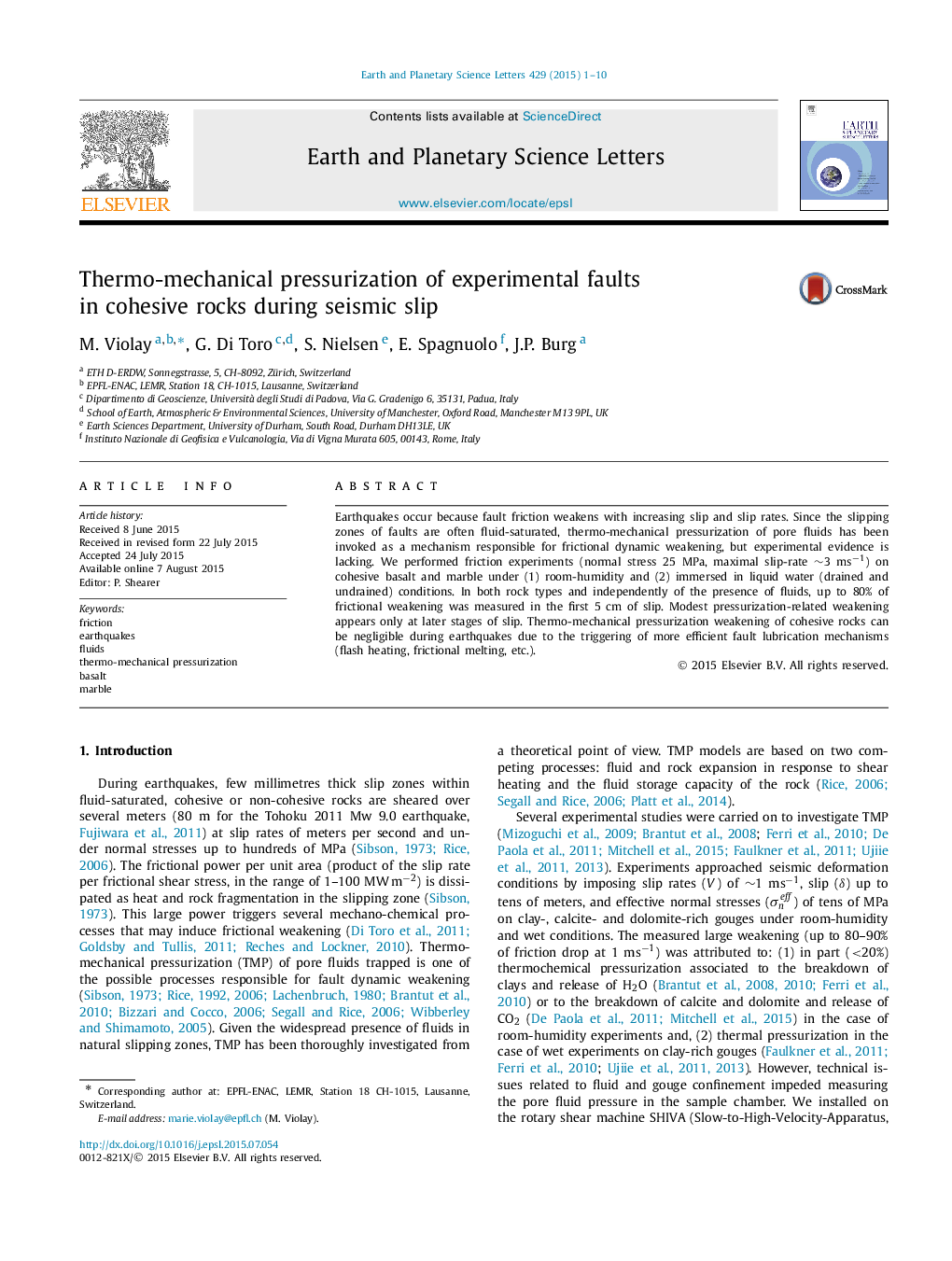| Article ID | Journal | Published Year | Pages | File Type |
|---|---|---|---|---|
| 6428174 | Earth and Planetary Science Letters | 2015 | 10 Pages |
â¢High velocity friction experiments on cohesive rocks under undrained conditions.â¢Experimental evidence of thermo-mechanical pressurization (TMP).â¢TMP weakening of cohesive rocks is negligible during earthquakes.
Earthquakes occur because fault friction weakens with increasing slip and slip rates. Since the slipping zones of faults are often fluid-saturated, thermo-mechanical pressurization of pore fluids has been invoked as a mechanism responsible for frictional dynamic weakening, but experimental evidence is lacking. We performed friction experiments (normal stress 25 MPa, maximal slip-rate â¼3 msâ1) on cohesive basalt and marble under (1) room-humidity and (2) immersed in liquid water (drained and undrained) conditions. In both rock types and independently of the presence of fluids, up to 80% of frictional weakening was measured in the first 5 cm of slip. Modest pressurization-related weakening appears only at later stages of slip. Thermo-mechanical pressurization weakening of cohesive rocks can be negligible during earthquakes due to the triggering of more efficient fault lubrication mechanisms (flash heating, frictional melting, etc.).
